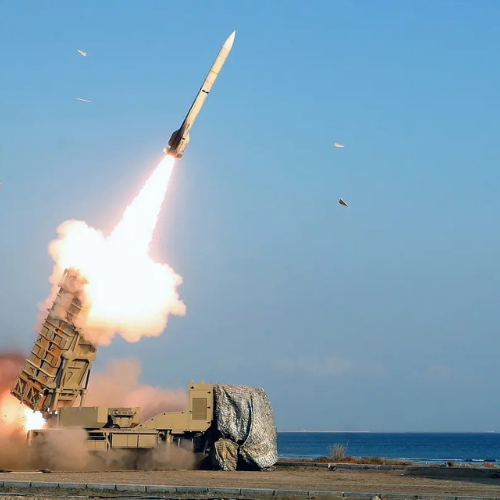In recent weeks, a series of airstrikes carried out by Israel have severely impacted Iran’s ability to produce and export missiles to Russia. This situation is significant because it affects not only the two countries involved but also the ongoing conflict in Ukraine, where Russia is currently engaged in warfare. Understanding the details of these strikes helps to grasp the larger picture of global military relationships and conflicts.
The Airstrikes on Iran
Early in the morning, Israeli forces launched a major attack on Iranian military facilities. They used over 100 aircraft, including advanced fighter jets like F-35s and F-16s, as well as drones. The focus of these strikes was on specific factories where Iran makes weapons, particularly ballistic missiles. One of the main targets was the “planetary mixers,” which are important machines used to create solid fuel for these missiles.
By targeting these factories, Israel aimed to disrupt Iran’s ability to produce missiles. The strikes were successful, causing significant damage that will hinder Iran’s production capabilities for a long time. Experts believe that Iran may struggle to export missiles to Russia for at least several months, and it could even take up to two years for them to get back on track.
The Connection to Russia and Ukraine
The airstrikes are especially relevant in the context of the ongoing conflict in Ukraine. Over the past months, Iran and Russia have developed a close military partnership. Iran has supplied drones and missiles to Russia, which are being used in the war against Ukraine. For instance, Iran has provided a short-range missile called the Fath-360, which has a range of about 75 miles and can carry a warhead weighing around 150 kilograms.
Israel’s Fierce Airstrike Damages Iran’s Missile Power, Leaves Nuclear Sites Untouched
In return, Russia has been a crucial supplier of military technology to Iran. This includes air defense systems that Iran uses to protect its own territory from attacks, particularly from Israel. With the recent Israeli strikes, Iran’s ability to send missiles to Russia is now severely restricted. This is important because Russia is heavily relying on its allies, including Iran, to support its military efforts in Ukraine. The absence of Iranian missiles could make it harder for Russia to sustain its operations in the ongoing conflict.
Iran’s Reaction and Future Challenges
Following the strikes, Iran has expressed outrage and concern. Officials in Iran stated that they reserve the right to respond to what they call “criminal aggression” by Israel. They also claimed that a significant part of the attacks was intercepted, meaning some missiles were shot down before they could hit their targets. However, they acknowledged that the damage inflicted was considerable and represents a wider Israeli effort to weaken Iran’s military capabilities.
Additionally, the airstrikes not only targeted missile production facilities but also impacted Iran’s air defense systems. Iran relies on these systems to protect itself against potential attacks from Israel. The strikes destroyed important components of Iran’s air defenses, including a series of S-300 batteries, which are meant to protect key locations in Iran, like airports and military bases.
The loss of these defenses makes Iran more vulnerable to future attacks. They also suggest that Israel is committed to maintaining pressure on Iran to limit its military capabilities. As a result of these developments, Iran may need to look for new ways to rebuild its missile production capabilities. This could involve seeking help from other countries like China, which may take a long time to organize and implement.
The Israeli airstrikes have had a significant impact on Iran’s ability to produce and export missiles to Russia. The situation affects the ongoing conflict in Ukraine, where Russia is increasingly reliant on military support from Iran. With Iran now facing serious challenges in restoring its missile production, the dynamics of military partnerships in the region may shift in unexpected ways. As tensions continue to rise, the outcomes of these airstrikes will resonate beyond the immediate conflict, influencing international relationships and security for the foreseeable future.


